Unfortunately, when it comes to mental health, there are many myths about depression swirling out there, which people tend to believe in a second.
I was diagnosed with clinical depression about two years ago. Sadly, this didn’t lead to me beginning a wacky romance with a free-spirited girl who taught me to embrace life and love myself for who I am. I just started taking prescription drugs, made a few lifestyle changes, and felt smugly justified about listening to Joy Division.
All the time I spent not Silver Linings Playbook-ing it up made me realize that a lot of what I thought I knew about depression was about as accurate as what elementary school children know about where babies come from.
If you haven’t experienced mental illness for yourself, there’s a chance you believe ridiculous things like …
Here Are 5 Common Myths About Depression
#5. Depressed People Are Constantly Miserable and Alone
Despite what we see in pop culture, depression is not a constant parade of doom and despair. That’s one of the reasons people have so much trouble noticing that their friend is depressed — how could Steve be depressed when he hosted such a smooth and bubbly orgy last week?
People will often feel at their best when they’re socializing because life’s problems fade into the background when a stranger buries their face in your junk. But when you’re alone, curled up in a ball of fear and panic like a kitten cuddling with the yarn ball of sadness, that’s when depression fucks you over. Your friends aren’t there to see it, and you don’t want to talk to them about it because your brain is telling you that the shits they give will be precisely zero.
There will also be times when you feel fine on your own but miserable with friends. Your mood almost seems to be random, like your brain is playing roulette with your emotions and it’s had too many comped drinks. That may explain the public nudity charges, but it doesn’t really fly with a judge. Trust me on that one.
Even when you’re being treated, you’re not always going to be at 100 percent. I have days where I wake up and feel like I’m going to rip life a new Saturday, but on other days I lie in bed for hours because the only thing I think would be worth getting up for is throwing myself in front of a bus made out of swords. Then there are the days where I do nothing but eat Oreos and masturbate. That has nothing to do with the depression; I just really like eating Oreos and masturbating. I call it cookies and cream. I’m not apologizing for that joke.
The point is that when you’re depressed, you’re in a constant battle with your dumb brain for control of your life. You can win and turn those crappy days around, but you have to know the fight is happening. Don’t assume the battle is won, or that there isn’t even a battle going on. You may be fighting for the rest of your life. Depression is the Warhammer of illnesses, basically.
Related: 5 Myths About Depression That Should Be Done Away With Immediately
#4. Depression Just Means Being Sad
One of the most common myths about depression is that it means being sad. When you hear that someone’s depressed, you assume they’re sad, because duh, it’s right there in the name. It’s not called happission. But while most depressed people do feel like they’re having a week-long case of the goths, it punches everyone’s crotch differently.
Some people end up with an anger trigger that the Hulk would consider extreme. That’s because one way to feel better about yourself is to make other people feel like shit, so a nice bout of telling your neighbor’s kid that his finger paintings look like they were done by a quadriplegic chimpanzee can be just the thing to pick you up. Sure, you’re still depressed, but at least you’re not a stupid idiot that can’t even paint a simple kitty cat. This is especially problematic because friends and family will be less enthusiastic about reaching out to someone who might bite their hand off.
Contradictory symptoms are part of what makes depression difficult to detect. You might have trouble falling asleep or you might oversleep, and either way, you might not realize that it’s part of a bigger problem. I was sleeping until noon on weekends for months before I started to wonder if it wasn’t only because I was staying up late to alphabetize my pornography.
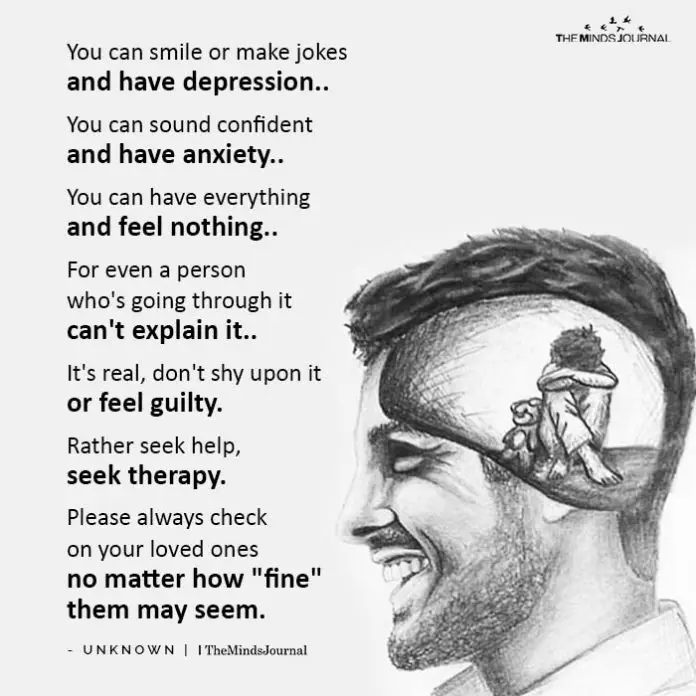
I also lost a lot of weight, because when I’m having a bad day, a couple of handfuls of blueberries and Cheerios seems like a good meal. That’s not a joke, that was literally my supper on several occasions. And I found myself fidgeting like I had spent the night in a hotel overrun by bedbugs, even on the days when I hadn’t replaced my blood with heroin.
That’s just me. Others might find themselves having trouble remembering things, or gaining weight, or having trouble remembering things, or listening to blues music and smoking cigarettes in the rain, or having trouble remembering things. And of course, these all add up to create new problems — for example, it’s hard to get motivated to take care of all your mundane day-to-day tasks when you’re sad, tired, and lacking nutrients from two-thirds of the food groups.
And then there’s the reduced sex drive. I don’t get laid, so I didn’t really notice any difference, but sexual side effects do affect many depressed people. If you’re in a relationship and can’t make Mr. Smith visit the hat shop (is … is that a sex metaphor? I’m really bad at sex, you guys), your partner might be unsatisfied or worried that you find them unattractive. And then you’ll worry that you’re making your partner unhappy, and then you’ll be unhappy, and then you’ll be even less in the mood to bring your horse to water.
Even your libido melting away like a Popsicle in the sun isn’t a guaranteed side effect. One study found that some depressed women have more sex because they’re using the fun of orgasms to fight depression other symptoms, which raises the obvious question of how I go about joining their support group.
#3. Antidepressants Don’t Work
This is another one of the many myths about depression. Everyone’s heard that antidepressants are a scam. And not just from Sunshine Flower, the hippie who runs the local food co-op, but from the mainstream media. Often it’s accompanied by a scary statistic that says more people in America are on antidepressants than water or a commentary about how in the good old day’s people didn’t need Big Pharma shoving pills down their throats. You even see it in pop culture. Garden State is a movie about a man whose life improves after he stops taking his prescribed medications, and we all know that Hollywood would never lie to us.
First of all, depression rates are rising because we’re getting better at diagnosing it. It’s the same reason a lot more people were identified as mentally handicapped after people stopped assuming a donkey kicked them in the head as a child.
It’s true that in some cases antidepressants are not effective. That’s because the human brain is immensely complicated, and we don’t know much more about it than the monkeys knew about the monolith in 2001. You’re trying to fix a biological computer, not a tangled Slinky — of course the same treatment isn’t going to work for everyone. But for some people antidepressants absolutely do help, and it’s irresponsible to claim otherwise. It’s like saying that because cancer screening doesn’t have a 100 percent effective rate there’s no point in getting checked.
The science behind antidepressants is complicated, heavily debated, and poorly understood. I’m not going to get into it, in part because any medicine beyond a splint is basically wizardry to me. But the real issue is that people misunderstand what antidepressants are supposed to accomplish. They’re not magical feel-good drugs that wipe away all your problems just in time for you to win the big game; they’re one part of a multifaceted treatment process.
A long and tedious part — it can take months of experimentation to determine what drug or drugs in what dosages are appropriate for each person because again, brains are hard.
People who are anti-antidepressants say things like half of all people who try them quit after four months because they’re not getting results. Well, maybe that’s because it can take six weeks just to figure out if they’re working, never mind the time spent fiddling with the prescription to get it just right. If you’re expecting to cure a major mental illness in less time than it takes to play an NFL season, you may be a different kind of crazy.
The point of antidepressants isn’t to solve all of your problems; it’s to keep you from feeling overwhelmed so you can solve them yourself.
Related: What Depression Looks Like: The Hard-Hitting Truth
#2. Depressed People Just Need to Snap Out of It
People who argue that antidepressants don’t work are also eager to tell you that mental illness is a hot new trend, like twerking, but somehow actually less sad. It’s cool to be depressed because you can act miserable all the time but get mad when people call you out on it. It’s free rein to be an insufferable jerk. Wow, depression is awesome!
But if all that pretend illness is stressing you out, don’t worry — there’s a solution. According to one of the scions of journalism at the Daily Mail, “It’s called self-empowerment and costs absolutely nothing.” Ignoring the fact that “self-empowerment” is often as meaningless as telling someone to synergize their paradigms, the author’s what we’ll generously call an argument is that people who are depressed just need to get over themselves and move on. Shit, so if I don’t want to be depressed, I just need to stop being depressed? Why didn’t I think of that?
Admittedly, the Daily Mail is such low-hanging fruit that it’s practically a potato. But it’s an attitude that’s depressingly easy to find (see what I did there?). Here’s an article from the Daily Caller that argues that depressed people should fight their woes with a stoic attitude and good old-fashioned prayer, instead of wasting valuable tax dollars on stupid things like “treatment.” And here’s the Daily Mail again, with an article that’s basically the written equivalent of a “Deal with it” gif.
It’s nice that these editorials are limited to sites read by people who think the president is a homosexual communist, but it’s easy to find them on forums, or in comment sections, or coming out of the mouth of some mouth breather at a coffee shop. And not only are they wrong, but they’re also dangerously wrong.
The message is “Depression is fake, so if you have it, it’s your own fault.” Because that’s just what the mentally ill need to hear — that the problem lowering their quality of life is imaginary and self-inflicted. That will make them feel better! Or it will damage their personal lives or careers, or contribute to suicide rates. You know, either/or.
Then you have people blaming America’s mental health system for mass shootings. Well, there’s a mixed message — if you have depression, you’re probably faking it, but if it’s real, then you’re a mass murderer waiting to happen. I’m not saying that the mental health system doesn’t need improvement, but maybe not treating the mentally ill as either liar or ticking time bombs would help, too.
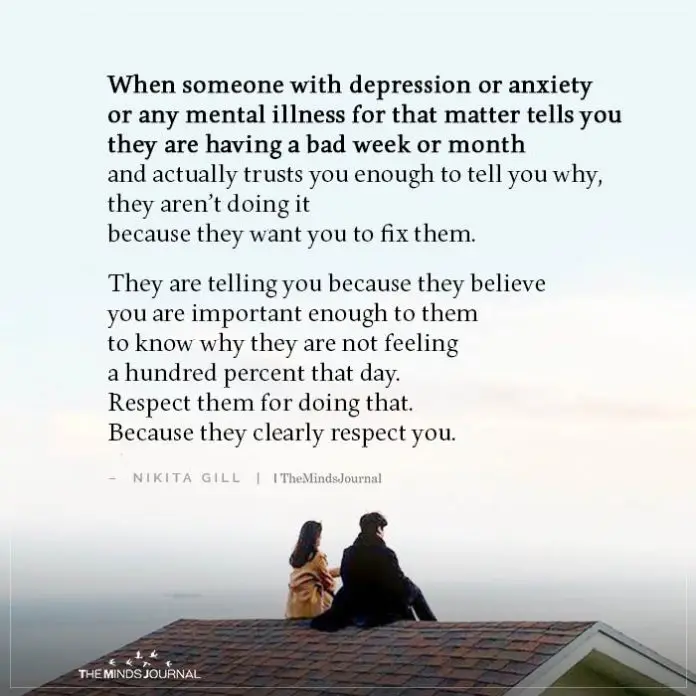
Most people, like the intelligent and no doubt incredibly attractive folks reading this, know better. But mental illnesses are heavily stigmatized, and it doesn’t take much to put someone who’s already feeling irrationally ashamed of himself in a bad place.
So if you ever feel the urge to tell someone to just get over their depression, stop and imagine what would happen if you told that to a person with, say, a broken leg or a cartoonishly large, life-disrupting penis.
#1. Only Women and Old People Get Depressed
This is another one of the most common, and annoying myths about depression out there.
Our friend from the Daily Mail mentions a fellow who argues that men face a stigma when it comes to admitting to mental health problems. But don’t worry guys — we’re only sad because many women are now making more money than us. And that’s just karma for all the years we were keeping women down, so don’t expect any pity! It takes a special kind of stupid to argue that stigma doesn’t exist by perpetuating it, but as Mark Twain once said, “Nobody ever lost a dollar by underestimating the intelligence of the Internet.”
It’s true that women are about twice as likely as men to be diagnosed with depression, but that’s not because hack comedians were right all along about their brains working differently. The most common theory is that social factors discourage men from seeking help. Manly-man men aren’t supposed to suffer from wimpy emotional problems like a stupid girl — if they’re feeling down, they should hike into the wilderness and shoot something. Men who talk about their feelings are basically giant pussies.
So while most women are getting treatment and support, men are prone to dealing with their problems through substance abuse, bouts of violence (remember how that’s one of the symptoms?), and the medically unsound practice of suicide. It’s quite possible that women are still more susceptible to depression — the very nature of the problem makes it difficult to get accurate statistics, much like how the world has yet to produce an accurate study on the average penis size.
But thinking that half of the population is immune to depression based on their genitalia is a little different from thinking that half the population is immune to prostate cancer.
Teenagers face their own problems when it comes to mental health because when most people hear a teenager say they’re depressed, they assume it’s because that slut Steve from math class dumped them. While it’s true that Steve is, like, the biggest whore, there can be more to the story than that. So while some teenage depression will sort itself out with a daily dose of two to three bad poems and five servings of Linkin Park, other cases are every bit as severe as what adults face.
Related: Debunking 11 Common Myths Around Mental Health
But teens are hesitant to seek treatment because they falsely assume there will be too many obstacles. Maybe they’re worried they won’t be taken seriously or that the Internet will call them emo, or maybe they don’t want to tell their parents about it. Or maybe their brains are simply convincing them that it’s not worth the effort. Remember, many of them are experiencing this for the first time in their lives.
To them, this feeling is just another part of living, like dealing with their dad’s insatiable desire to see the return of grunge.
If you want to know more myths about depression, then check this video out below:
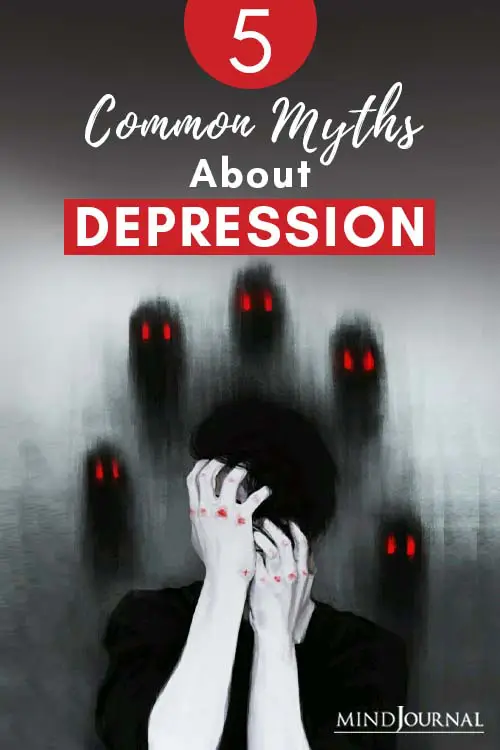
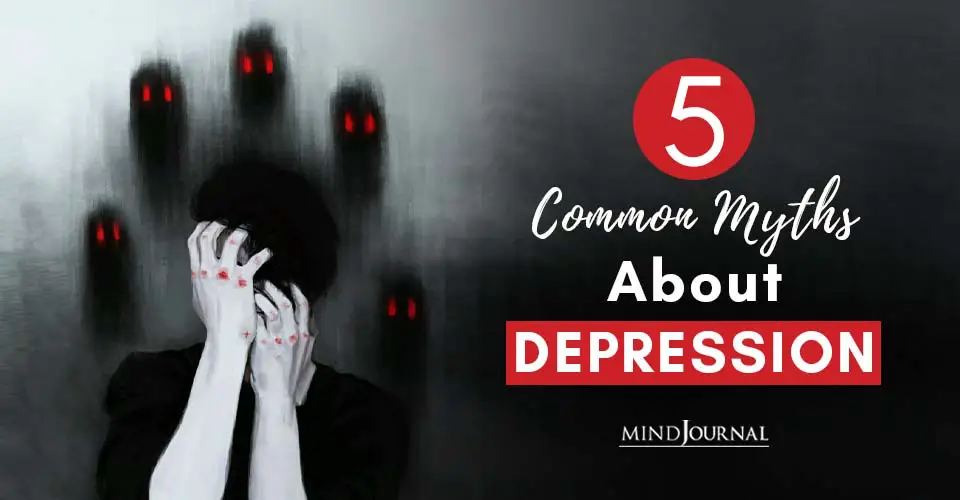






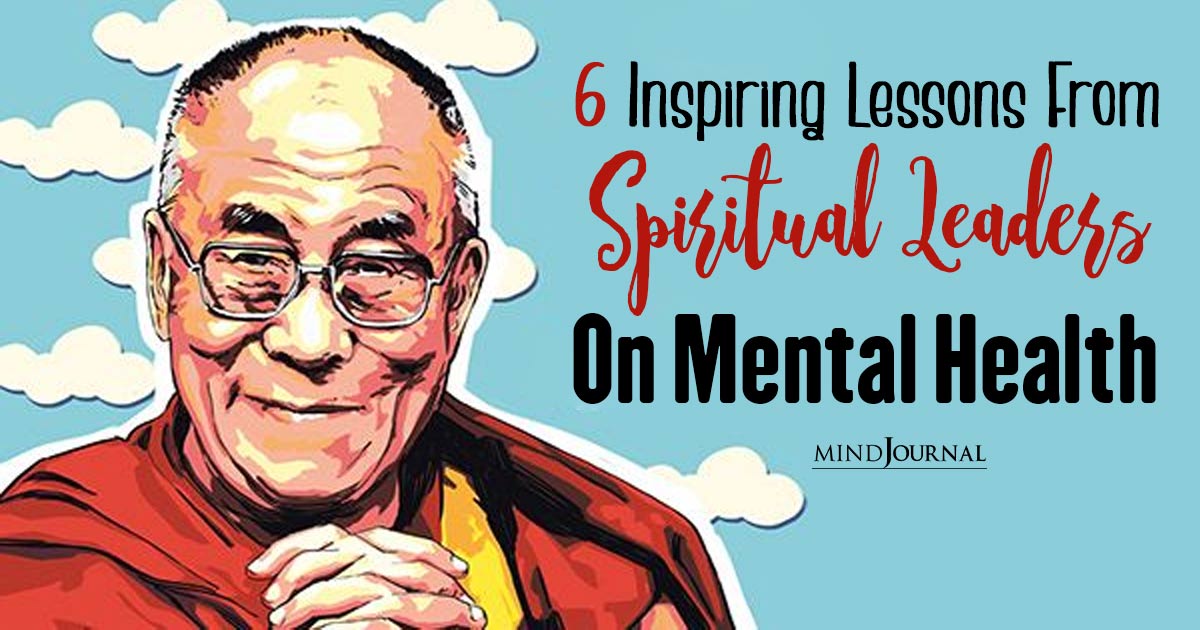
Leave a Reply
You must be logged in to post a comment.